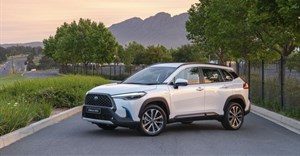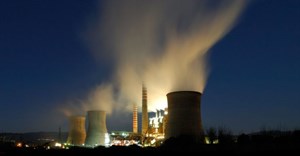
Green issue for trailers

According to Clinton Holcroft of Serco, the main issues that affect CO2 emissions are tare weight, tyre pressure and thermal efficiency.
He points out that the company's Super Reefer Lite trailer, launched in 2009, has reduced vehicle tare weight, thus reducing rolling resistance and therefore CO2 emissions. The ultra-lightweight 30-pallet show trailer weighs 8380 kgs including the cooler unit. This weight saving will deliver a reduction over a seven-year period of 37 tons in CO2 emissions and a reduction of 0,81 litres of fuel per 100 km in comparison to a standard trailer with single tyres. This amount increases to a 58.9 ton saving in CO2 emissions and a 1.27 litre saving in fuel per 100 km when compared to a trailer with dual tyres.
Regarding tyre pressure - it was found in a recent survey that almost a quarter of vehicles inspected had underinflated tyres, which increase fuel consumption and emissions. The company has introduced 'P-eye' tyre pressure sensors as a simple but effective way to remedy this problem while saving on tyre wear and fuel at the same time.
Thermal efficiency
Maintaining thermal efficiency of the body is paramount to reduce fuel consumption of the fridge motor. Prompt attention to damage to the body will help reduce water ingress. Door seals and heat bridges will also influence the thermal efficiency of the body. The type of refrigerant used is also a major factor. Certain CFC refrigerants have now been banned and the industry is seeing more efficient motors being introduced, which use less fuel.
Numerous other aspects can be considered when making the choice to be responsible. It is however clear that going green can also make sound economic sense, he concludes.

















